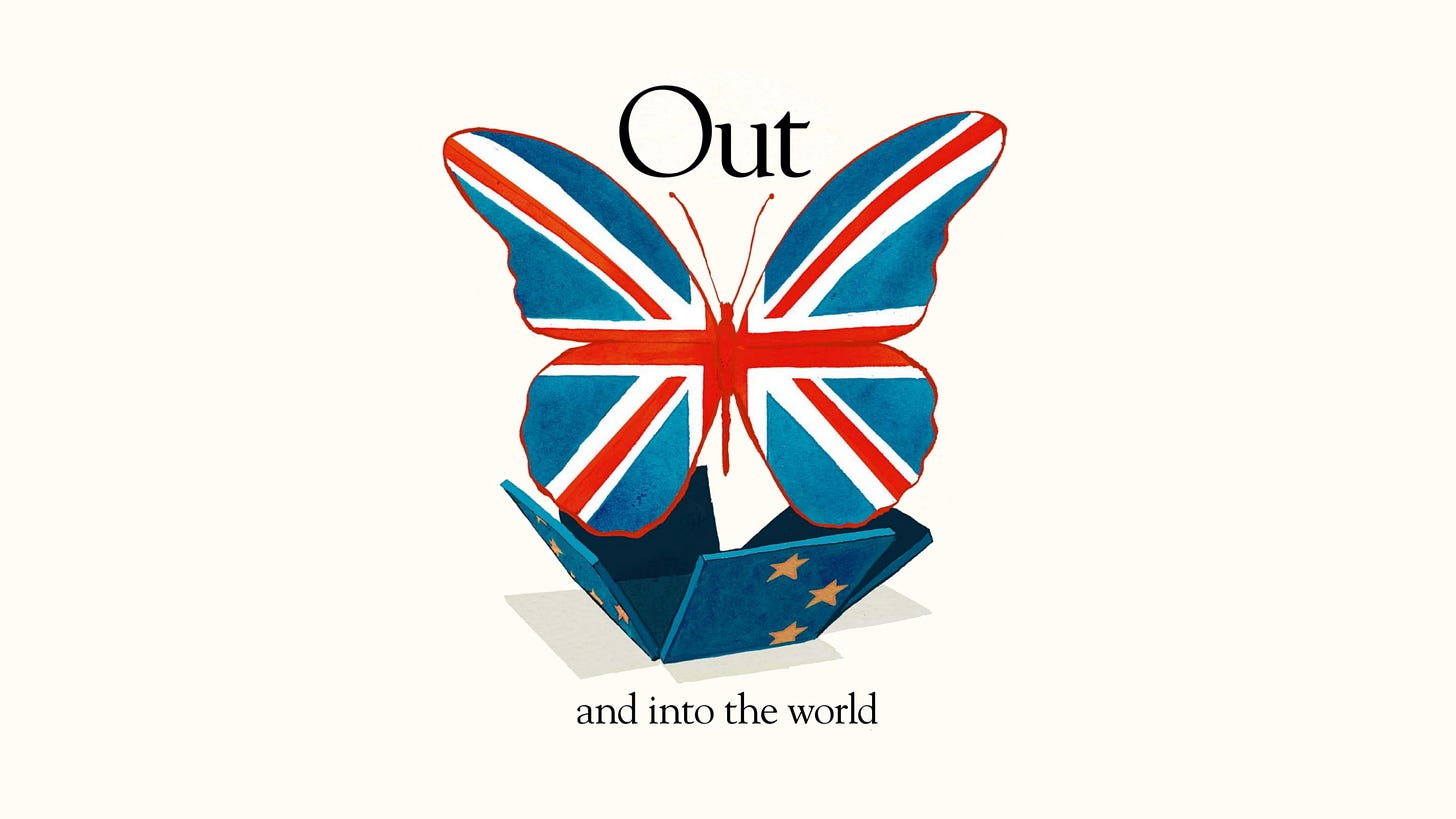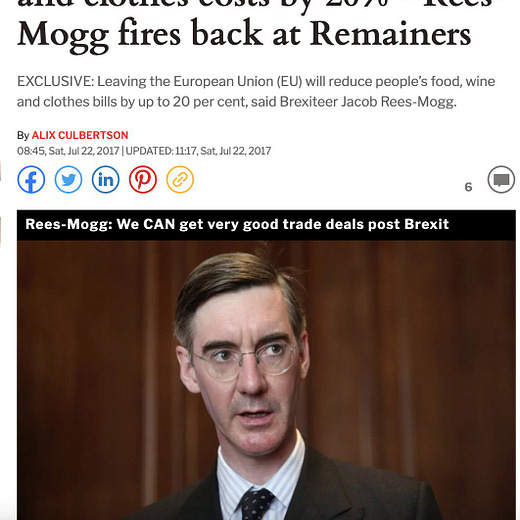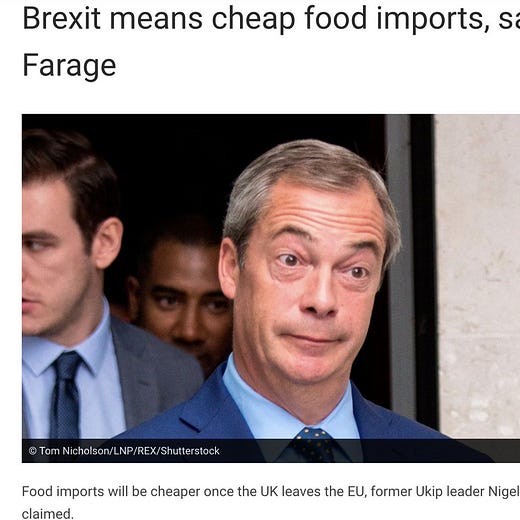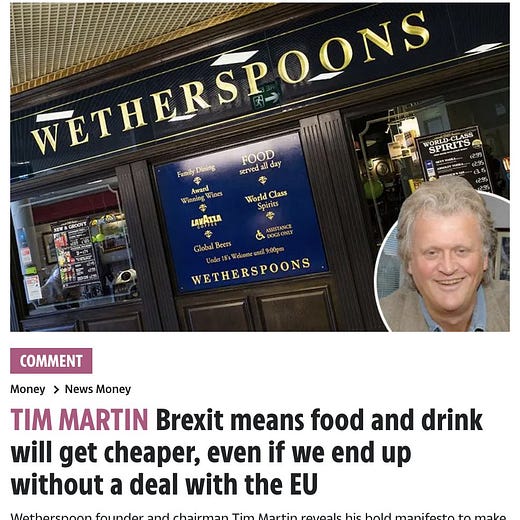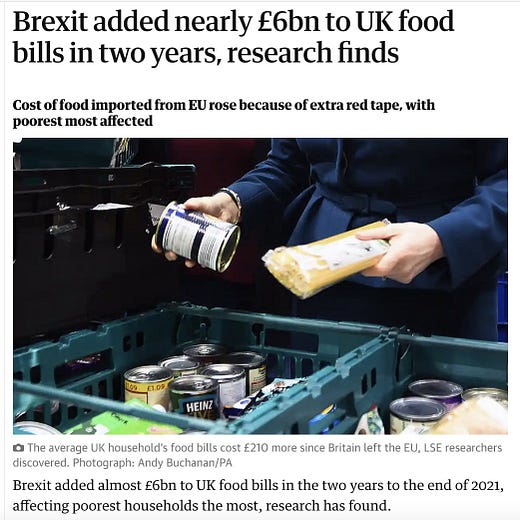The lies told by the 'somewhere over the rainbow' Brexiteers
Faced with the harsh economic reality of leaving the EU, Brexiteers are being forced to adopt a new tactic to defend their failing project
For decades Brexit campaigners argued that a bright new horizon awaited the UK if it only had the courage to spread its wings and leave the EU.
These claims, which were initially made by people who had little hope of ever seeing their ideas tested in real life, continued even after the Leave side won the referendum.
Brexit will make food “much cheaper” Nigel Farage confidently told the BBC in September 2016.
“Everything will get much cheaper – absolutely.”
Farage’s predictions were endorsed by leading Conservative Jacob Rees-Mogg, who claimed that “Britain’s poorest citizens could see their disposable income rise ‘significantly’” due to lower food costs after Brexit.”
“How do we achieve that? We achieve that by shoring up our economy by allowing them to buy high quality food that is cheaper from other countries,” he said.
The reality, as new figures reveal today, is quite different.
Far from making food “20% cheaper” as claimed by Farage and his allies, Brexit has actually significantly added to the cost of our weekly shops.
According to the study, by the London School of Economics, Brexit added almost £6 billion to UK food bills in its first two years.
The researchers found that “leaving the European Union increased the price of food products by three per cent a year, leading to a six per cent increase over a two-year period” to the end of 2021.
These findings add to a growing body of evidence confirming the negative impact of Brexit.
Yet rather than admit to this reality, leading Brexiteers are now adopting a very different, and in some ways much more insidious tactic, to cover their tracks.
Keep reading with a 7-day free trial
Subscribe to Folded with Adam Bienkov to keep reading this post and get 7 days of free access to the full post archives.



